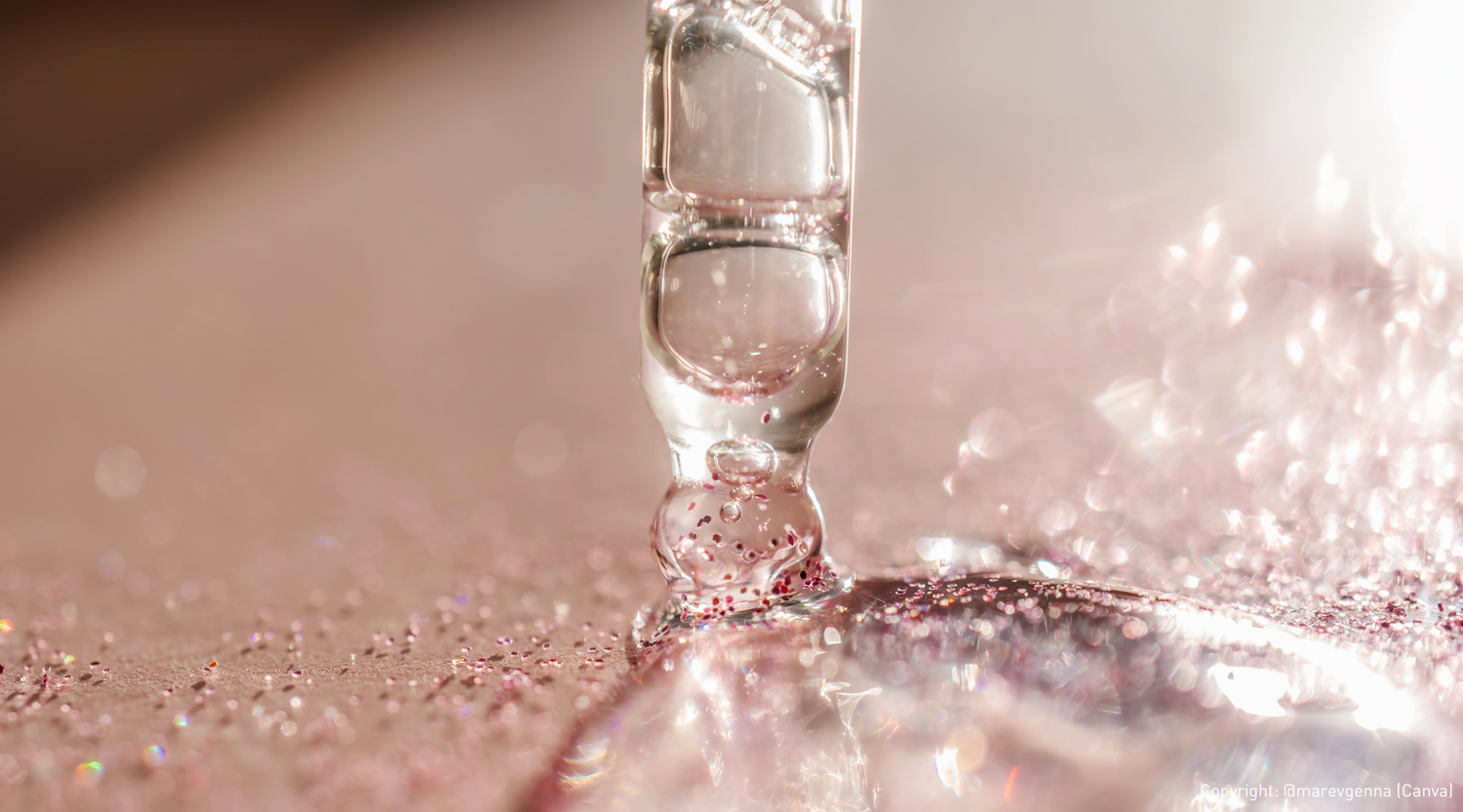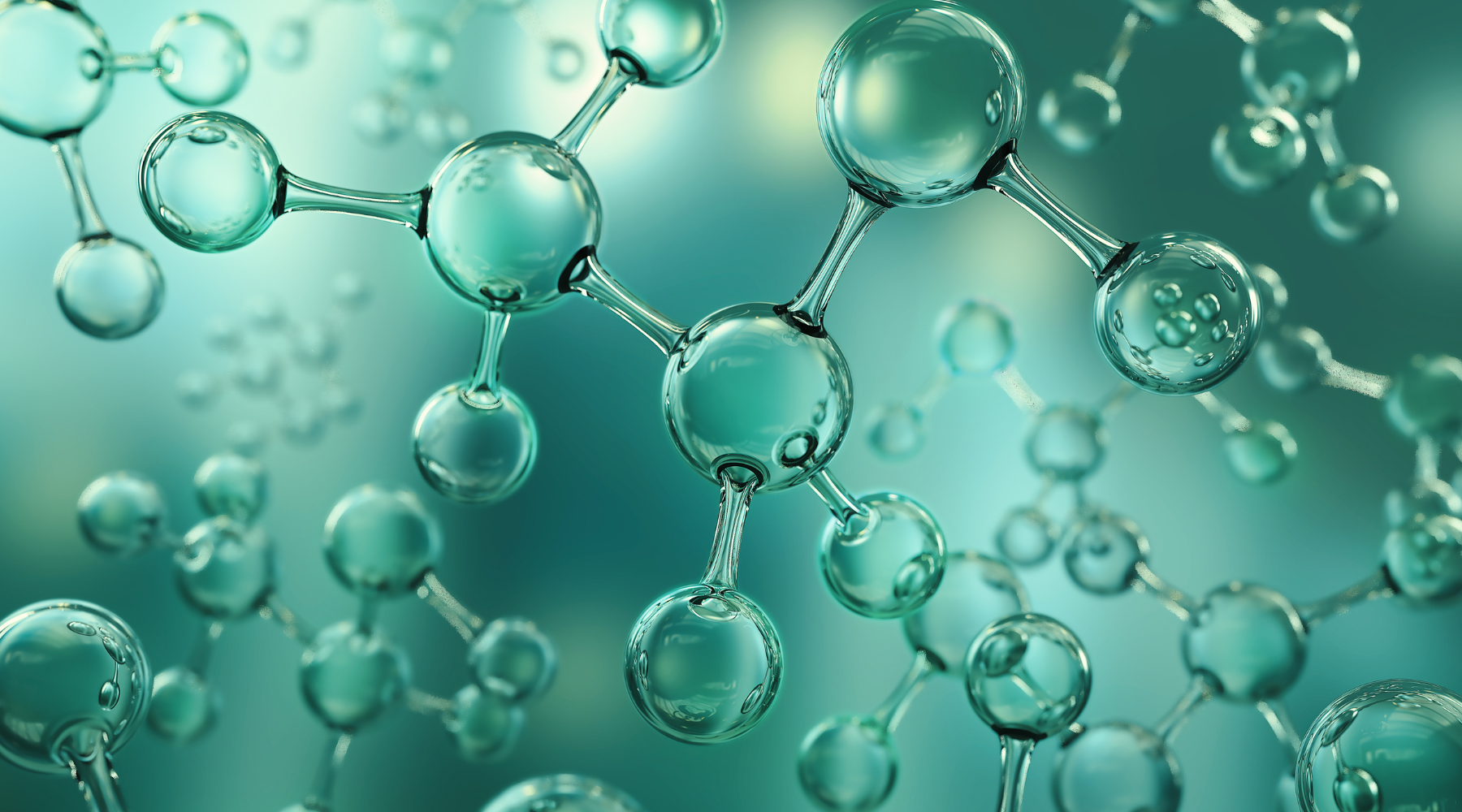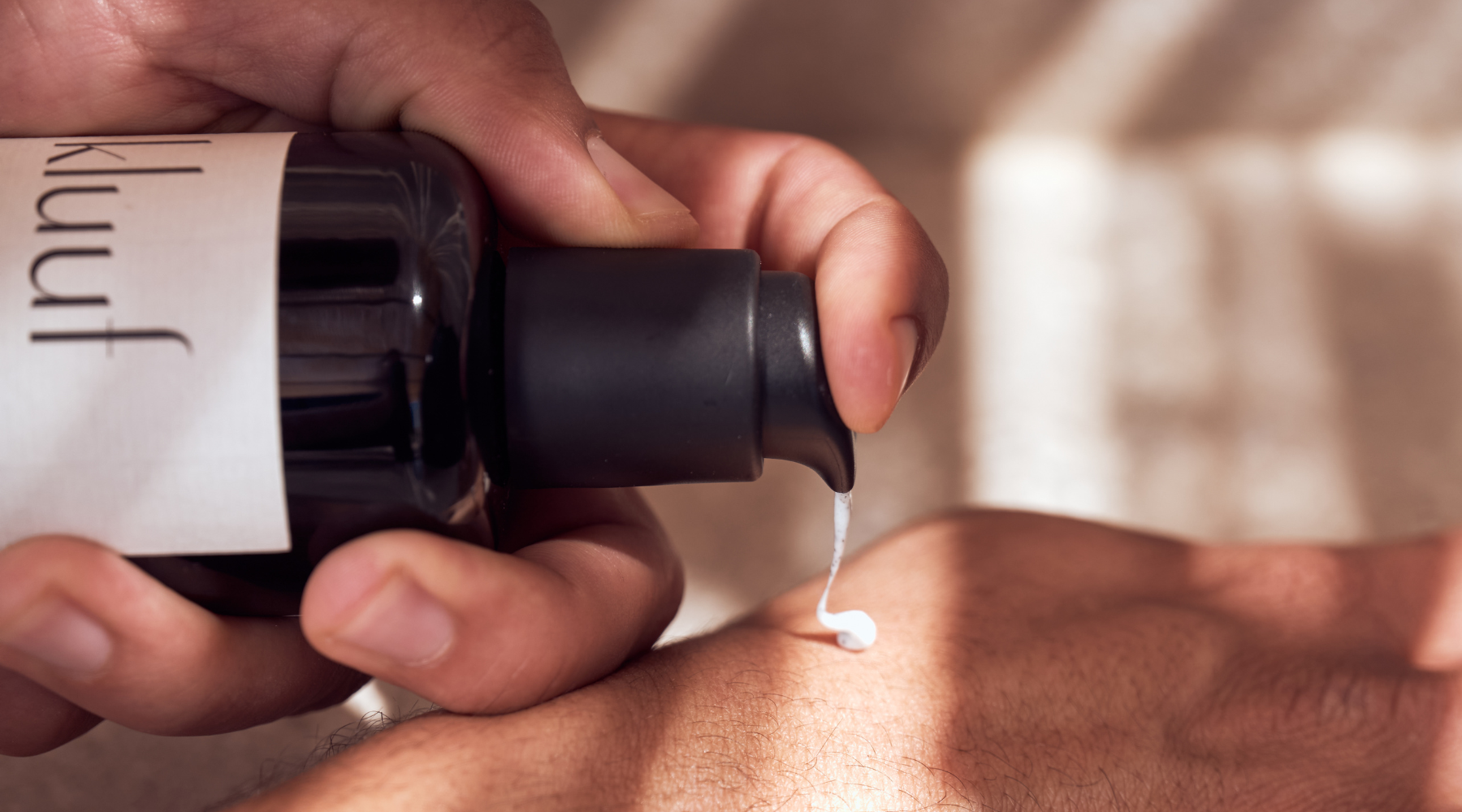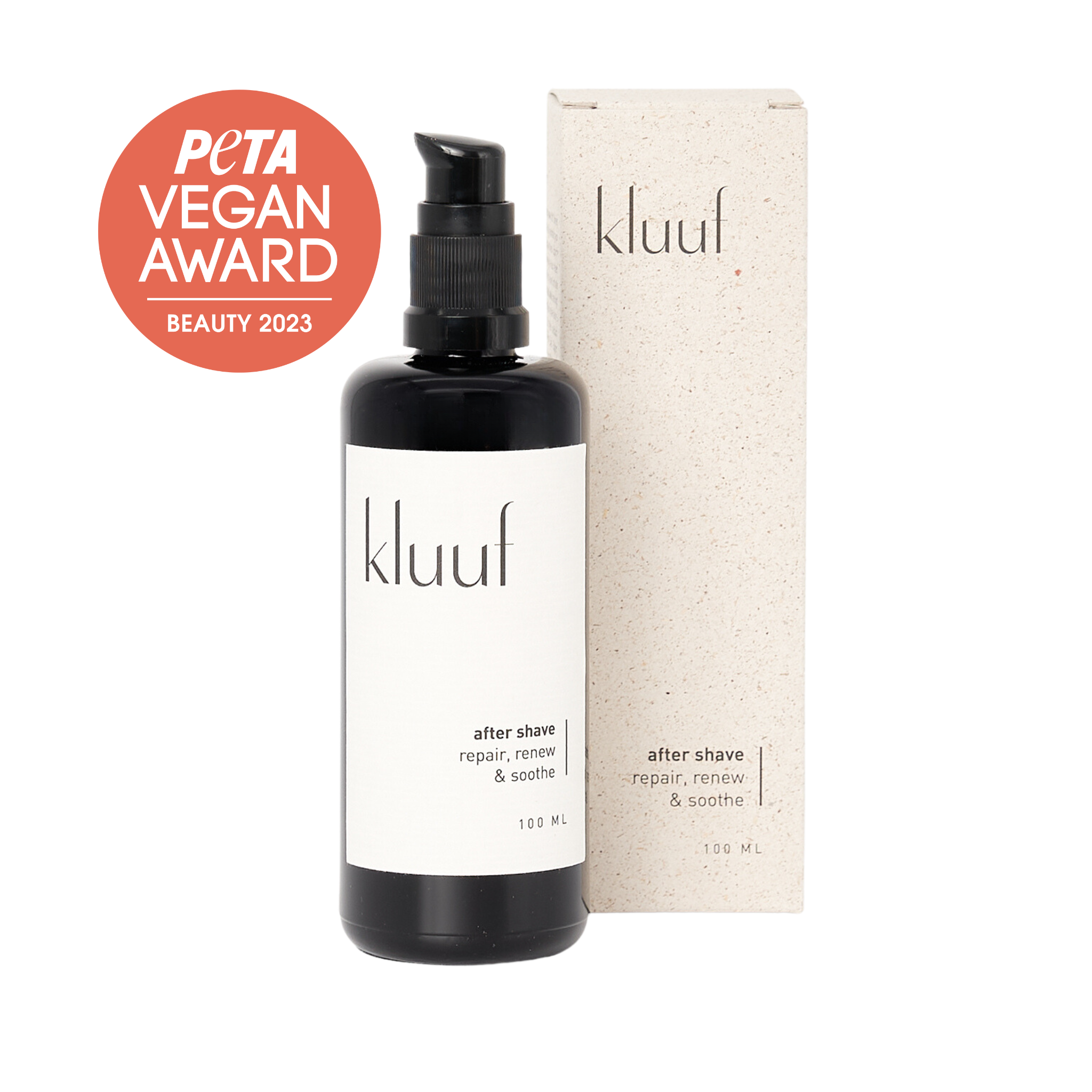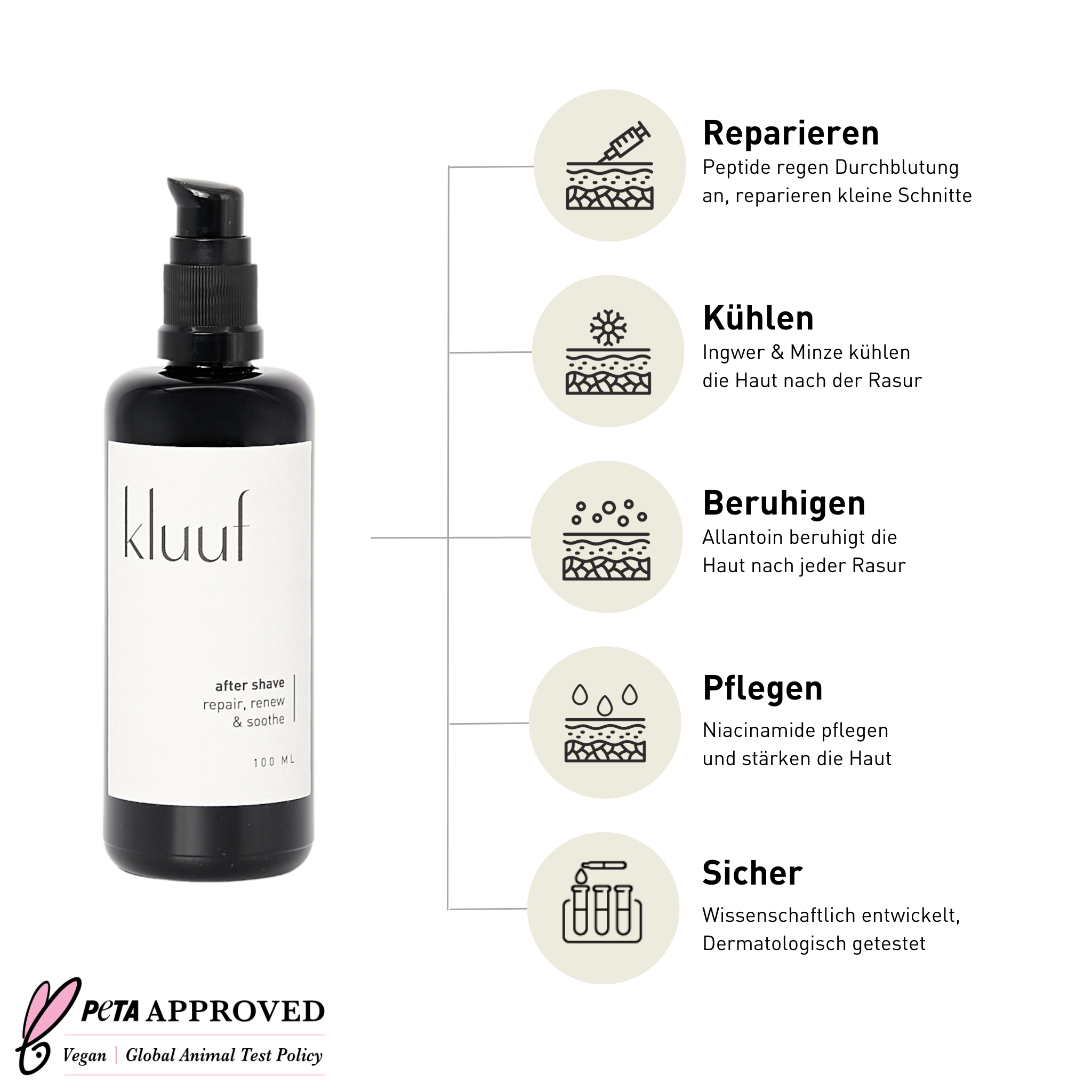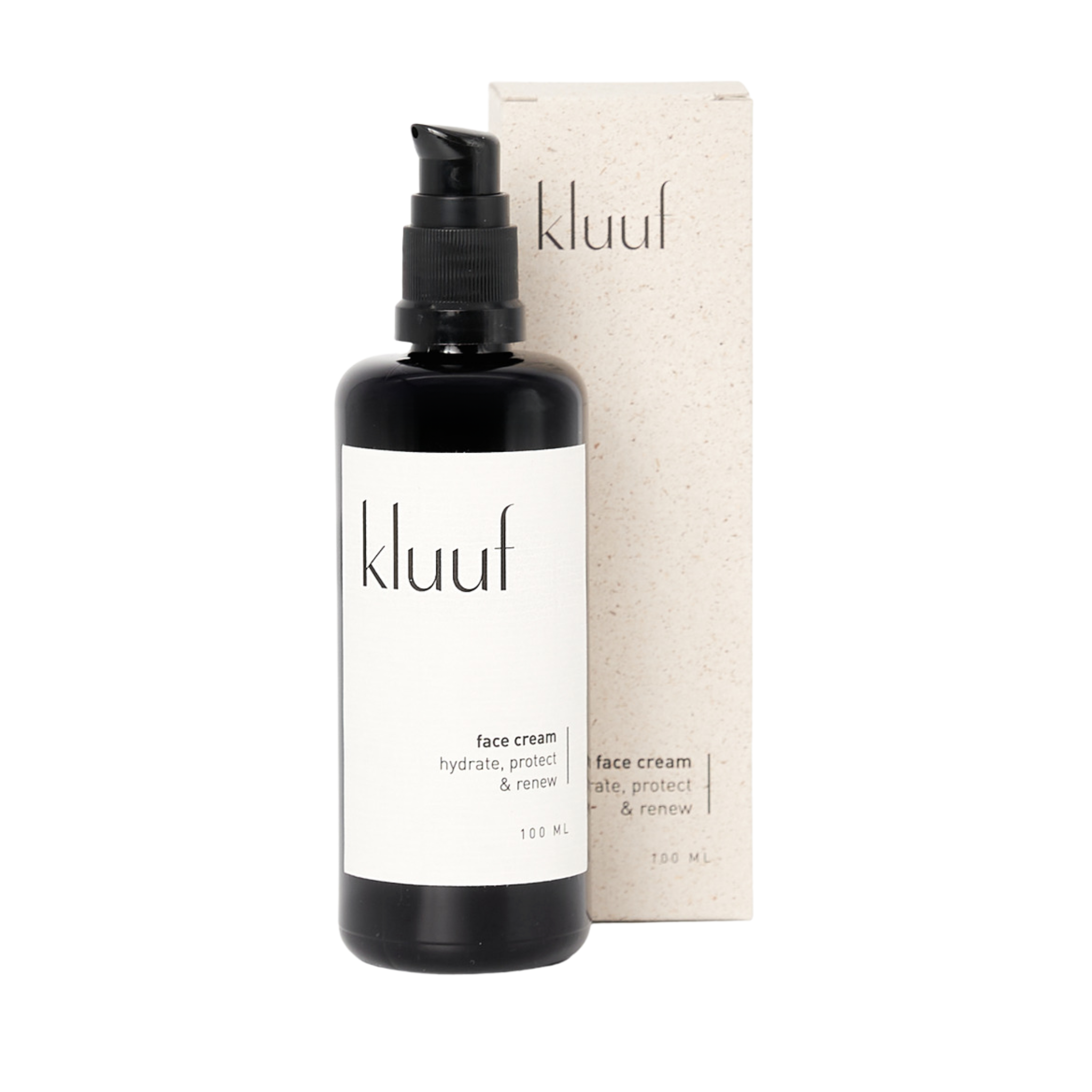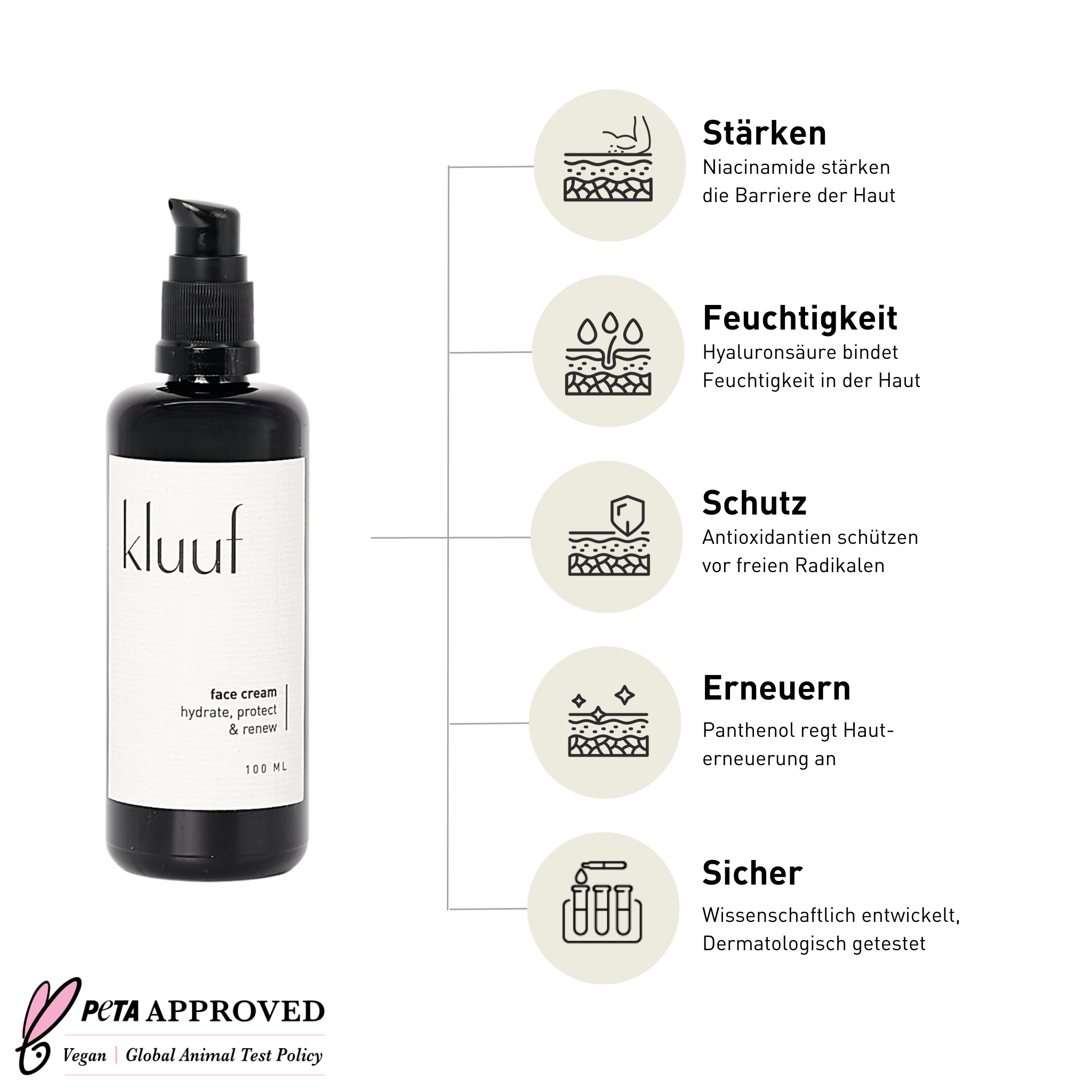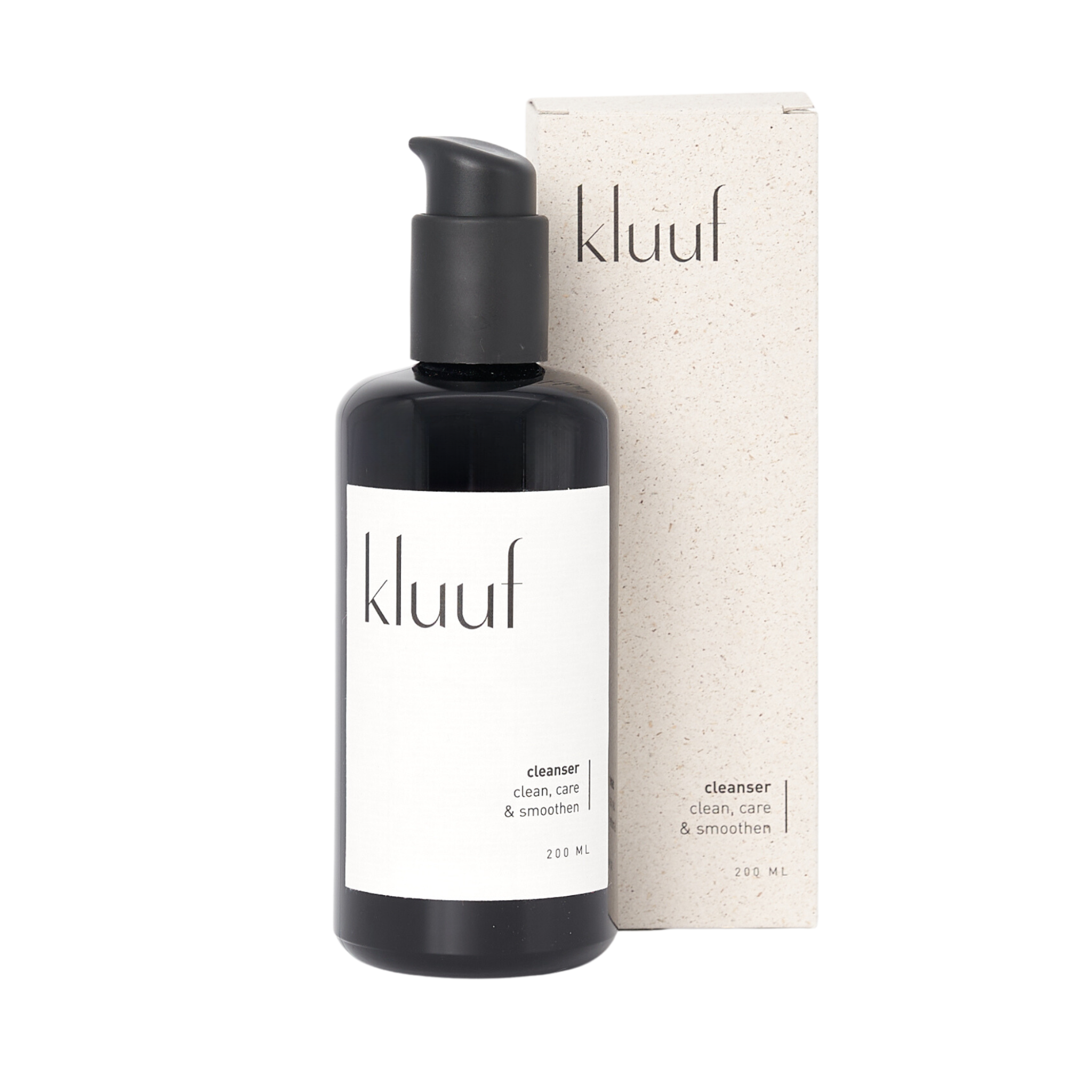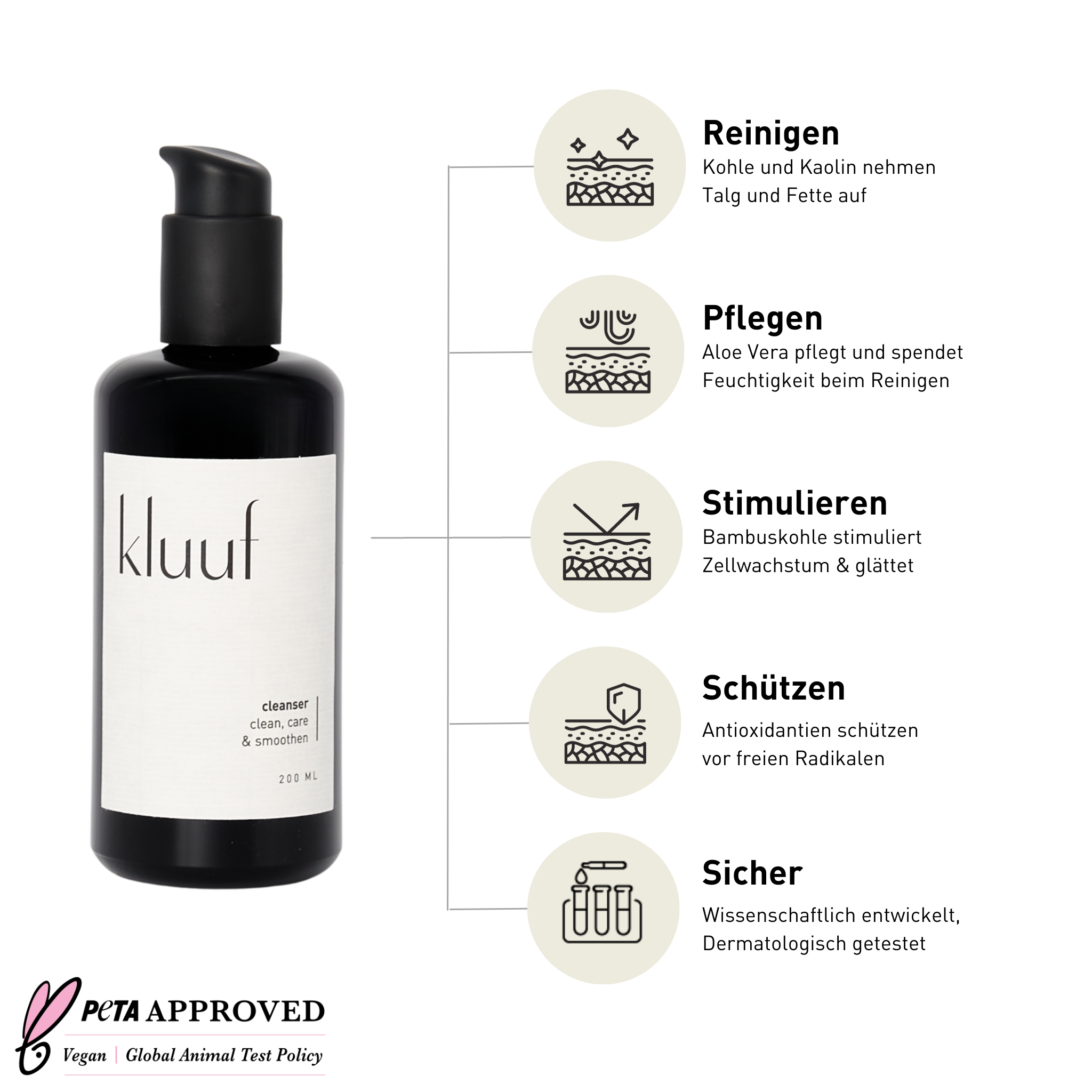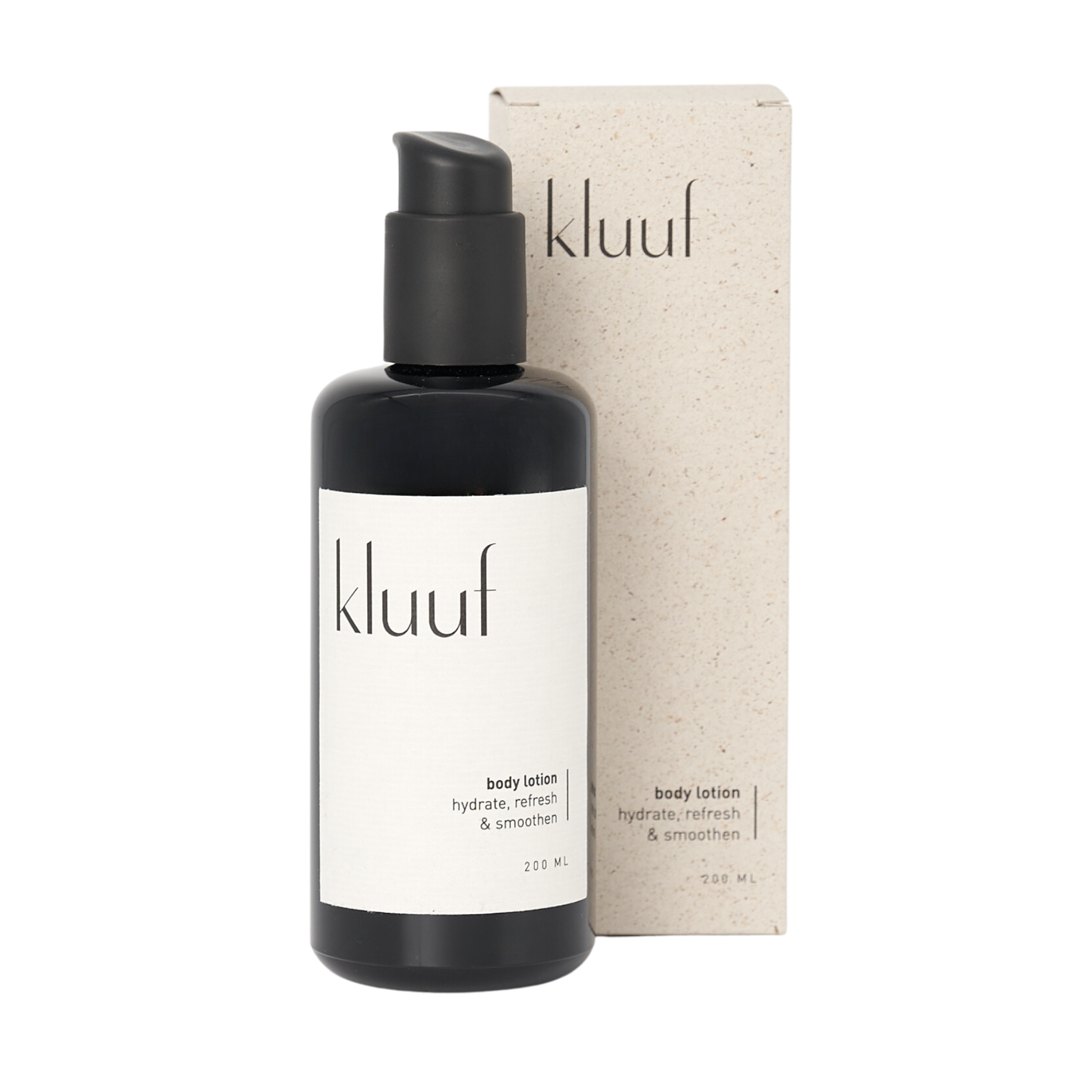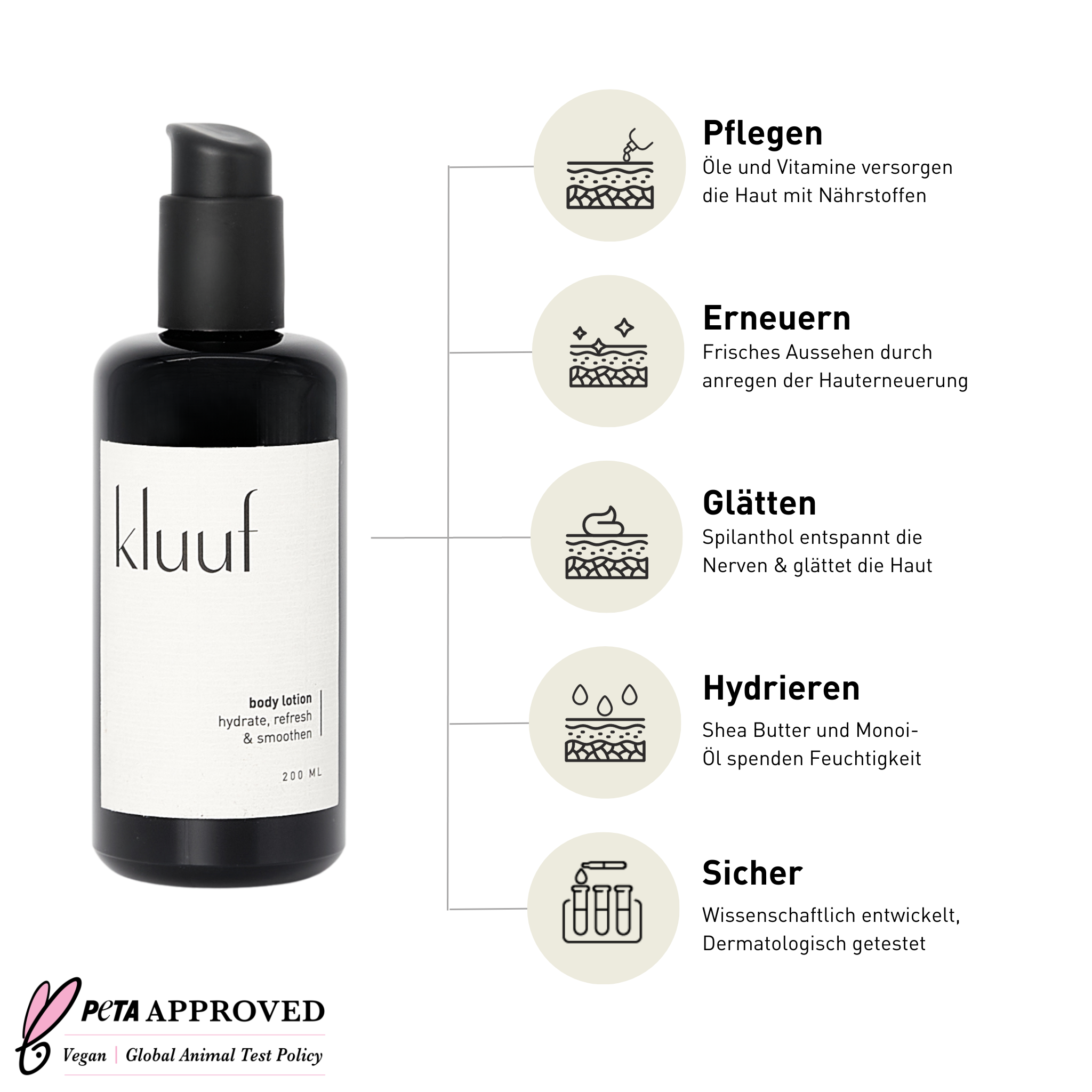Skincare trends come and go - some ingredients keep their promises and others disappear as quickly as they appeared.
Peptides are one active ingredient that cannot be ignored these days.
Especially in the field of anti-aging facial care, peptides are mentioned more and more often and there are even already special peptide boosters or peptide serums on the market. As is often the case with trends, these products promise a lot and make you pay for it with a premium price.
But what actually are peptides, where do they come from, what do they do for our skin, are they well tolerated, what about sustainability (keyword vegan), is there anything special to consider in men's skincare and are peptides worth their price?
We shed light on these and other questions in our blog and thus bring you clarity in the sustainable care of your skin.
What are peptides and where do they come from?
The short answer is: Peptides are components of proteins, which in turn consist of amino acids that are held together with so-called peptide bonds.
But let's take a step back: All proteins are made up of different combinations of amino acids. When two or more amino acids are linked, this is done with the help of a peptide bond (also known as a carboxylic acid-amide bond to the chemists among us).
When two or more amino acids are linked by means of a peptide bond, this union is called a peptide.
Very large peptide bonds (usually more than 100 amino acids) form proteins.
This makes it clear that peptides are naturally occurring substances in every body. Among other things, they provide the structure of cells, regulate metabolism and act as transponders. Without peptides, nothing works.
But what role do they play in our body and what do peptides do in our skin?
Peptides with anti-aging effects in face creams?
As the previous paragraph has shown, peptides are not only everywhere, but also play a fundamental role in the structure of our skin. Thus, it is clear that peptides are crucial for the health as well as the appearance of the skin.
But what do peptides actually do in our skin and how does this affect its appearance?
Peptides bind water:
Moisture is the foundation for healthy and good-looking skin. This is exactly where a variety of peptides support us:
The chemical structure of peptides allows water molecules to bind to them. Thus, the water content of the skin is naturally increased and the skin is strengthened. The skin is thus sustainably supplied with moisture. Hyaluronic acid, by the way, has a comparable feature and is therefore also preferably combined with peptides. True to the motto: ""twice is better"".
Peptides stimulate collagen production:
Collagen is a component of our skin that becomes less as we age (read all about it here). Since collagen significantly influences the structure of our skin, the skin appears less elastic and fresh as we age.
Some peptides can act as messenger molecules and thereby instruct the body's own mechanisms to produce collagen.
The decreasing collagen content of the skin with time is thus counteracted in a natural way and the structure of the skin is strengthened.
Peptides improve cell communication:
One of the main reasons peptides are so hyped is because they are said to have anti-aging effects - primarily skin tightening and wrinkle reduction. What peptides can actually do is improve communication between skin cells - in this specific case between the cells that produce elastin and collagen for our skin.
This can stimulate the production of elastin as well as collagen and the skin becomes visibly firmer and tighter. Wrinkles are reduced and there is indeed the desired anti-aging effect. It is important to note that the anti-aging naturally wears off when there are no more peptides - so it is a short-term effect (which we don't think is a bad thing, because wrinkles are beautiful too).
Criticism of peptides: It is important to mention in the context of all the wonderful benefits that peptides in skin cosmetics are also criticized: This is not due to the fact that the above-described effect of peptides is doubted - this is undisputed among most experts. Rather, it is about the fact that it has not yet been proven how well our skin can actually absorb external peptides - for example, as an active ingredient in a face cream.
Some scientists note that the skin's own enzymes break down peptides absorbed through the skin before they can develop their full effect. Thus peptides can be so effective on paper, but they do not get to develop their effect in the skin.
--> There are some exciting long-term studies going on at the moment, which we will of course keep you up to date on.
Our opinion at kluuf is therefore: Peptides in skin care yes, but not exclusively but in combination with other active ingredients. This way, your skin benefits from high-quality and modern active ingredients with proven effectiveness in studies, and the (possible) effect of the peptides is there as a bonus. For us at kluuf, this is uncomplicated skin care for men.
Compatibility and sustainability with peptides
The previous paragraph has shown that peptides are a natural component of any skin. This applies to both humans and animals. Accordingly, such peptides are not vegan.
In skincare, however, synthetically produced peptides are usually used and these can then very well be vegan - just like the peptides kluuf uses in its skincare products. The question of the origin of the ingredient can therefore, as so often, not be answered in a general way. If in doubt, ask the brand or look for vegan labels (such as PETA approved).
Since peptides are a natural component of any skin, there is usually a very good skin compatibility: The active ingredient already known in the different layers of the skin and is considered endogenous. As mentioned in the previous paragraph, however, it is still unclear whether peptides can penetrate the deeper layers of the skin (subcutis & dermis) at all, or whether they are already broken down by enzymes beforehand.
It should also be noted that some peptides are used in creams, serums and boosters that do not exist in the body - in this case, a defensive reaction may be triggered.
As always, it is important to pay attention to the concentration and combination with other ingredients. We have already mentioned that the effect of many peptides is currently still being researched and dermatologically tested. Accordingly, not too much can be said at this stage about the skin compatibility of different skin types with different combinations of active ingredients and concentration.
We recommend that you always test a new product in small doses at the beginning and then gradually increase the concentration. This way you can ensure the skin compatibility and enjoy the effect without unwanted side effects.
Peptides in a nutshell
Peptides are the building block of every protein, thus found everywhere in the body and an important component of our skin.
Here peptides fulfill a variety of tasks such as storing water or improving cell communication. All this has a positive effect on the health and appearance of the skin.
Although peptides are of fundamental importance for our skin, their effect in creams and serums is controversial. The criticism here is that it has not been proven whether externally supplied peptides are actually absorbed by the body or whether they are already broken down by the skin's natural defense mechanism with the help of enzymes.
By the way, peptides can be of animal or plant (vegan) origin. Here we recommend looking for sustainability seals or vegan certifications to make sure your skin care is sustainable.
At kluuf, we use a polypeptide mix in our after shave to help the skin regenerate optimally. We combine the peptides with other active ingredients such as hyaluronic acid and niacinamides for the best effective care. So your skin is optimally cared for and you feel fresh and refreshed after shaving.


